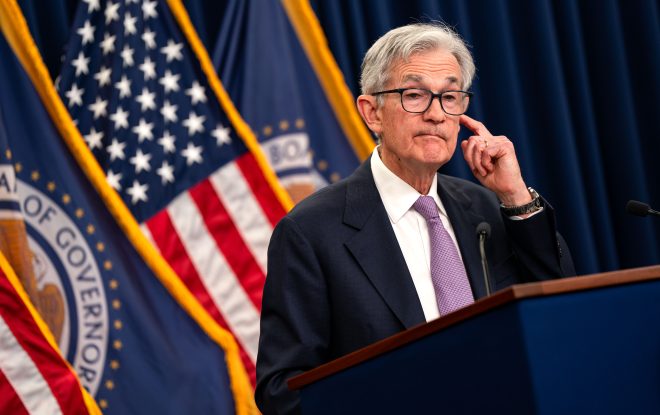Reality bites: Is Generation X in denial about its own impending retirement?
Is Generation X in denial about its own impending retirement?
Gen X, born between 1965 and 1980, will be next to retire after the baby boom. It’s a generation largely defined by financial uncertainty: Generation X was the first to cope without ubiquitous workplace pensions, relying instead on a new savings tool called the 401(k). The Great Recession of 2008 stands as the generation’s defining economic event.
Now, with the oldest Gen Xers pushing 60, the cohort may not be ready for its next life stage.
A Wealth Watch survey from insurer New York Life is one of several recent reports that portray much of Generation X as woefully unprepared for their looming retirement.
Fewer than half of Generation X, or 46%, are “actively planning for retirement,” New York Life found, even as they approach the milestone.
Most of Generation X, or 70%, think they will retire “later than expected,” the survey found, “or not at all.” Only one-quarter of Gen-Xers believe they will retire on time. The survey, released in September, reached 2,230 adults.
‘They’re basically going to be working forever’
“There are a whole lot of Gen Xers who are finding themselves resigned to the fact that they’re basically going to be working forever,” said Matt Schulz, chief credit analyst at LendingTree, the personal finance site.
Generation X’s retirement fears are not unwarranted.
Gen Xers ages 45 to 54 had a median net worth of about $247,000 in 2022, according to the federal Survey of Consumer Finances.
That’s less money than baby boomers had at the same age. Boomers in the 45-54 age group had a median net worth of about $265,000 in 2007, after adjusting for inflation.
The contrast suggests Generation X has struggled more than other age groups to recover from the Great Recession of 2008.
“I think there’s this cumulative wear and tear of different circumstances Gen X has had throughout their lives,” said KC Boas, head of retirement thought leadership and marketing at BlackRock, the global investment firm.
First the dot-com bubble, then the Great Recession
Many in Generation X entered the workforce around the time of the dot-com bubble, the tech-stock boom that went bust in 2000, sending the stock market tumbling.
Several years later, many Gen Xers were in their prime earning years when the Great Recession hit. Every generation suffered in 2008, but economic research suggests Gen X suffered more than most.
“Older generations were hit much harder, in some ways, because they had more to lose,” said Catherine Collinson, CEO of the nonprofit Transamerica Center for Retirement Studies.
Late baby boomers, born between 1960 and 1965, were also in their top earning years when the Great Recession descended. Today, the “Beatlemania boomers” have much less retirement savings than Americans born in the 1950s or earlier. They and Gen X suffered a similar fate.
Millennials, born between 1981 and 1996, have fared better. The millennial generation is in a stronger financial position now than Gen X was at the same age, according to a new LendingTree analysis.
As of 2022, millennials had a median net worth of $84,941, LendingTree reports. Generation X had a lower net worth at the same age: $78,333, after adjusting for inflation.
Millennials are also better-off financially than boomers were at the same age. But boomers are much more likely than Gen X or millennials to have workplace pensions, a guaranteed source of retirement income.
Gen X entered the workforce as pensions were fading
Generation X entered the workforce as workplace pensions were fading, leaving most workers to build their own retirement savings with 401(k) plans and Individual Retirement Accounts.
But 401(k) plans were few and far between in the early years. Partly for that reason, many Gen Xers got a late start in retirement saving.
“This all happened without access to education and guidance,” said Jessica Ruggles, corporate vice president of financial wellness at New York Life. “It wasn’t until much later that we did things like auto-enrollment and auto-contribution,” innovations that encourage higher rates of retirement saving.
Schulz, of LendingTree, is 52: a quintessential Gen Xer. He got his first real job around 1995, in his early 20s.
“I didn’t even really think of retirement, or anything like that, at that age,” he said.
The typical Gen Xer began saving for retirement at age 30, half a decade later than millennials, according to the Transamerica Center. Today, the median Gen X household has $93,000 in retirement savings: Not nearly enough, in the eyes of many retirement planners.
As a result, Transamerica found, most Gen Xers plan to keep working in retirement.
Those figures come from the 2024 Transamerica Retirement Survey of Workers, which reached 5,730 workers.
Gen X faces a singular struggle in preparing for retirement
Other retirement surveys concur that Generation X faces a unique struggle in preparing for retirement.
Only 60% of Gen Xers feel “on track” for retirement, the lowest share of any generation, according to the 2024 BlackRock Read on Retirement report.
Three-fifths of Gen Xers worry they will outlive their retirement savings, BlackRock found. Only two-fifths of Gen Xers use a financial adviser, the lowest rate of any generation.
Generation X also seems to have a credit card problem. More than one Gen X cardholder in four, or 27%, have maxed out their credit, Bankrate reported on Thursday.
Gen-Xers are more likely than millennials or boomers to have exhausted their credit, the survey found.
The finding is worrisome, retirement experts say, because consumers should be paying down their debt as they approach retirement, not charging it up. The Bankrate survey covered 3,576 adults.
Meet the ‘Beatlemania boomers.’ They face a looming retirement crisis
Gen X remains hopeful for the future
But here’s some good news, at least from a retirement perspective: Generation X is spending less on discretionary purchases in 2024, Bank of America reports.
“Discretionary” is a category that covers non-essentials. And discretionary spending among Gen Xers is down 2% in the year ended August, according to internal Bank of America card data, the biggest drop of any generation.
At the same time, Gen X is investing a larger share of its paycheck than other generations, according to a September report from Bank of America Institute.
“Bottom line, they’re spending less and they’re investing more,” said Joe Wadford, an economist at the Bank of America Institute. “It’s certainly a sign that Gen X is hopeful for the future. They think they will retire, and they think that in the future, those investments are going to pay off.”
This article originally appeared on USA TODAY: Gen X is next up for retirement. Are they in denial?





Leave a Reply